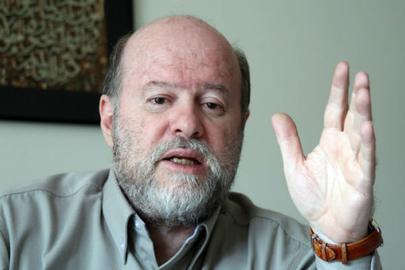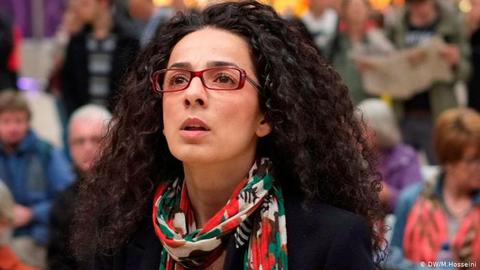Over the last 40 years, the Islamic Republic of Iran has arrived at a particular doctrine to deal with its foreign policy problems. This doctrine follows on from the republic’s stance toward foreign hostages in Lebanon during the first two decades of its existence, as well as on its tactic of arresting dual nationals over the last two decades. The following is a review of the Islamic Republic’s practice of taking hostages since its inception.
I was listening to the news on Voice of America’s Persian service. It reported that tonight the second American hostage [in Lebanon] had been released. Statements made show that the American government does not want to give Iran any concessions until all American hostages are released. If true, Lebanon would stop releasing the hostages and the US will be sorry.”
-Akbar Hashemi Rafsanjani’s diaries, 1990
With the approval of the Supreme Leader and the decision of the Supreme National Security Council, the intelligence ministry negotiated with the United States on the exchange of Iranian and American prisoners and we obtained concessions for Iran, including the return of $400 million. We reclaimed this $400 million and we hope that the government and the government’s diplomacy can also remove the $1.31 billion interest on it from their claws.
-Intelligence minister Mahmoud Alavi, August 2016
In recent years, the arrests of dual nationals in Iran as a tactic to deal with numerous problems between the Islamic Republic and other countries has reached an unprecedented level, and has practically made taking dual nationals as hostages a doctrine and a cornerstone of Iran’s diplomacy.
Iranian authorities do not even try to hide these arrests and the practice of hostage-taking under the cover of trumped-up charges. The Guardian newspaper reports that Foreign Minister Mohammad Javad Zarif has said he is ready to ask the court to release Nazanin Zaghari-Ratcliffe, an Iranian-British dual national and charity worker for the Thomson Reuters Foundation, in exchange for the payment of a debt of £450 million that the UK owes Iran. The former British foreign secretary called this offer “extortion” and rejected it.
Recently, the French newspaper Le Figaro reported that Fariba Adelkhah, a French-Iranian academic with dual nationality, was arrested by the Revolutionary Guards with the goal of exchanging her for Jalal Rohollahnejad, an Iranian engineer who was arrested at Nice airport in February 2019. In May, a French court approved the extradition of Rohollahnejad to the United States to face charges of attempting to illegally import US technology for military purposes on behalf of an Iranian company. If the French government approves and carries out the extradition, he faces up to 60 years in prison.
The high point of the Islamic Republic’s success in using this strategy was reached alongside the implementation of the nuclear agreement, officially known as the Joint Comprehensive Plan of Action (JCPOA), on January 16, 2016. After receiving the advance paid by the Shah for military equipment that was not delivered to Iran after the 1979 Islamic Revolution, a number of imprisoned Iranian-Americans were released and were sent back to the US.
A Planeload of Cash for a Planeload of Hostages
On that day in January, the money was sent in cash to Iran on a special flight and another special flight took the released Iranian-Americans out of Iran. At the time, Donald Trump, who had just started his presidential campaign, called this “a ransom given by Barack Obama’s administration to hostage-taking by the Islamic Republic of Iran,” but a US Department of State’s spokesperson said that the payment of the money was conditional upon the release of American prisoners in Iran.
There are numerous similar examples in the 40-year history of the Islamic Republic. And yet the situation was somehow different during the first decades of the republic. In those two decades, the regime relied on the western hostages in Lebanon, and its ability to release them through its influence on the Lebanese Hezbollah, to deal with its problems with western countries, and this was much more useful than its tactic of arresting dual nationals.
According to Akbar Hashemi Rafsanjani, Jacques Chirac, the French prime minister at the time, had made promises to Islamic Republic officials that France would release Anis Naccache, a Lebanese national who led a failed assassination attempt in 1980 on Shapur Bakhtiar, the last prime minister during the Shah’s rule, and who lived in Paris after escaping from post-revolutionary Iran. The attempt failed but a police officer and a civilian were killed. Bakhtiar was eventually assassinated in 1991.
Rafsanjani’s diaries say that in 1988, he was asked by the French foreign minister during a visit to Tehran about promises Chirac made. Rafsanjani wrote that he got the feeling that they wanted to use the promises against Chirac for leverage in domestic French politics. “I told him that the Lebanese have threatened that they will take revenge if Anis is not released,” Rafsanjani wrote. “I talked to him about American hostages [in Lebanon] and said that if the US releases our assets than we will help to release the hostages as much as possible.”
Eventually, Anis Naccache and his four accomplices were released in 1990 following a pardon from French President Francois Mitterrand and were put on a plane for Tehran. Since then, Naccache has been living in Iran instead of Lebanon.
The Iranian government insisted that France had promised to free him as part of a 1988 deal that won freedom for all French hostages held in Lebanon. According to Rafsanjani’s memoirs, a year earlier, Iran and France, with Algeria as the intermediary, had agreed that in exchange for the freedom of its hostages in Lebanon, France “would pay $350 million of its debt to Iran and would expel the counter-revolutionaries from France.” He wrote that this arrangement was approved after consultations with Prime Minister Mir Hossein Mousavi, Ayatollah Khomeini’s son and representative Ahmad Khomeini, and Ali Khamenei, who was by then the president of the Islamic Republic.
Simultaneously, Iran was also trying to use American hostages in Lebanon to resolve issues with the US. “Intelligence minister [Mohammad] Reyshahri came and reported on negotiations between one of his agents and the Americans,” Rafsanjani wrote in his diary in 1988. “In exchange for the freedom of American hostages in Lebanon, the Americans are ready to release our blocked assets, to support our views in [UN Security Council] Resolution 598 [that called for an immediate ceasefire between Iran and Iraq], and to allow American manufacturers to sell us needed military equipment through a third country. It was agreed that the subject would be raised at the meeting of the heads of the three branches of the government.”
Missiles for Hostages
Three years earlier, Iran had scored a victory using the same approach. After promising to help to release American hostages in Lebanon, Iran had received a shipment of TOW anti-tank missiles from the US, a vital necessity in its war with Iraq. “I ordered that the missiles be sent to the Revolutionary Guards,” wrote Rafsanjani on February 27, 1986. “Considering the effectiveness of these missiles in the ground war with Iraq, some believe that the US is not against Saddam’s defeat...Perhaps they are paying a ransom to smooth over relations before our victory over Iraq and to prevent us from gravitating toward Moscow.”
Cooperation with the US to free American hostages in Lebanon reached its height in 1990. In his diary entry for April 26, 1990, Rafsanjani, who had now become the president of the Islamic Republic, wrote that the Swiss ambassador to Iran had brought him a confidential message from US President George H. W. Bush, thanking Iran for its help in securing the release of Robert Polhill, a professor at Beirut University who had been a hostage for 39 months. The Swiss ambassador also quoted President Hafez al-Assad of Syria, who had told him that Iran’s role had been crucial in the affair.
There are quite a few references in Rafsanjani’s memoirs to Iran’s role in hostage-taking in Lebanon. On May 18, 1992, he wrote that Edouard Saouma, the Lebanese-born head of the UN’s Food and Agriculture Organization (FAO), who was in Tehran for a FAO meeting, had requested a private meeting with him and had asked Rafsanjani for help in securing the release of two German hostages in Lebanon.
After all the American hostages in Lebanon were released, there were no longer reports of large-scale hostage-taking in Lebanon or Iran’s intervention for their release. Many years later, a group of former hostages who had sued the Islamic Republic at American courts for its role in hostage takings have been awarded tens of billions dollars.
The regime discontinued this kind of hostage-taking from the mid-1990s, perhaps because it was no longer possible. Instead, the tactic was gradually replaced by authorities taking dual-national Iranians hostage — people whose visits to Iran increased after the reformist Mohammad Khatami was elected president in 1997.
Iran is one of the very few countries in the world that takes its own citizens hostage and violates their human rights, using trumped-up charges in order to solve its foreign policy problems. But there is nothing improvisational about it. Instead, it is based on experience and theory.
Related Coverage:
Families of Hostages in Iran Launch Alliance at UN, September 25, 2019
14 Foreign, Dual National and Foreign Residents in Iranian Prisons, September 24, 2019
Jailed British-Iranian had Permission for his Research, Septemb16, 2019
The British-Iranian Hostages Iran Labels as Terrorists, August 30, 2019
IranWire Speaks to Wife of Jailed Iranian-British Anthropologist, August 14, 2019
Another British-Iranian Arrested, August 13, 2019
Iranian-Austrian Businessman Arrested in Iran, August 2, 2019
“Nazanin Worries She Will be Forgotten”, July 26, 2019
Iranian Academic Arrested for Spying, July 16, 2019
Spy for Us or Else: Ahmad Reza Jalali, May 21, 2019
Spy for Us or Else: Nazanin Zaghari-Ratcliffe, May 20, 2019
Spy for Us or Else: Aras Amiri, May 17, 2019
Another Dual National Arrested in Tehran, April 30, 2018
News of Iranian-Canadian's "Suicide" in Prison Shocks Iran, February 2018
visit the accountability section
In this section of Iran Wire, you can contact the officials and launch your campaign for various problems


























comments